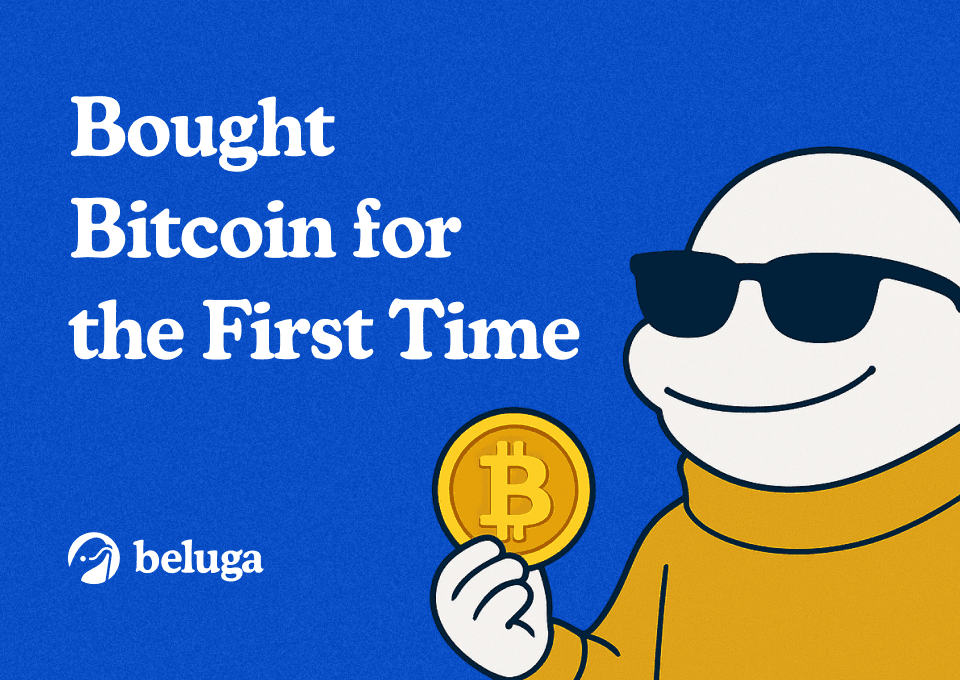Making the case for Pri-Fi
By Aidan Carney Skytt Updated July 3, 2025

Summary
- The early vision for Bitcoin was to create a decentralized, permissionless, and anonymous currency disconnected from government control.
- XMR is a check on government power and what Bitcoin was meant to be.
- The natural progression is to move your money into Pri-Fi, where no bank or government can touch it—or even know it exists.
Challenging the Old Guard
What if I told you there’s an emerging sector in crypto with a clear leader—one that’s being adopted by many of the earliest Bitcoin investors? This isn’t a dream. It’s Privacy Finance (Pri-Fi). Pri-Fi is focused on making cryptocurrencies more anonymous.
Problems with Bitcoin
The early vision for Bitcoin was to create a decentralized, permissionless, and anonymous currency disconnected from government control. But today, Bitcoin is becoming less decentralized as governments and institutions like BlackRock accumulate it. Bitcoin was meant to be a hedge against governments, yet now those same governments are building strategic reserves. The asset that was supposed to fight the Fed and reduce government power may soon end up on the Fed’s balance sheet(per Michael Saylor), potentially making governments wealthier and more influential.
Bitcoin's permissionless nature is also becoming more idealistic than factual. With most centralized exchanges requiring KYC, the days of moving crypto without questions are largely over. In the UK, exchanges will soon be required to report users’ transactions to the government. During times of instability, exchanges have also been known to limit or add requirements to withdrawals.
Anonymity is now limited to fringe cases when it comes to Bitcoin. Sure, Ross Ulbricht received 300 Bitcoin as an anonymous donation (possibly from himself) after he was released from prison. That was likely from an early Bitcoin pioneer with ties to Ross. But most Bitcoin wallets today are doxxed through KYC. If Chainalysis or federal authorities wanted to, they could trace 99% of Bitcoin transactions. Bitcoin’s public ledger is both a blessing and a curse.
A Better Option
Enter Monero (XMR), the world’s most private cryptocurrency. XMR is decentralized and permissionless. Transactions and balances are fully anonymous, allowing you to send and store money without anyone knowing. XMR is what Bitcoin was meant to be.
Why Should You Care?
The freedom to transact is a cornerstone of democracy. When you have to ask permission to send money, your sovereignty is being infringed upon. From a libertarian, cypherpunk perspective, a decentralized, permissionless, and anonymous currency—fully disconnected from government control—is a check on government power. That check was the original ethos of Bitcoin. Unfortunately, that ethos has been lost, and Bitcoin is no longer shaping up to be the ultimate freedom currency (though it’s still 10x better than the USD).
The Sovereign Individual, written in 1997, predicted the rise of a freedom-oriented digital currency.

Peter Thiel also predicted a peer-to-peer future back in 1999.
The final result of shifting the economy to a currency independent of government is a reduction in taxes, as they become harder to collect and it becomes easier to move money elsewhere. Governments will be forced to charge market rates for their services or people will simply leave.
Two Paths
Central Bank Digital Currencies (CBDCs) are on the horizon. Some argue that “CBDC” is simply being rebranded as “stablecoin.” CBDCs are anti-sovereignty. They will allow governments to trace every transaction, freeze or reverse those they don’t approve of, and seize funds at will. Buy a product that isn’t carbon neutral? Your transaction is reversed. Donate to the political opposition? Your funds are frozen. Say something offensive? Your wealth could be stripped to silence you. PayPal quietly experimented with this in 2022, stating it would fine users $2,500 for posting hate speech or misinformation—a policy later repealed after extreme backlash.
But there is another option: XMR. Its privacy-first design and separation from government control make it the ultimate juxtaposition to CBDCs. Get in while you still can. Just like in Atlas Shrugged, where you couldn’t buy gold with fiat, those who accept Monero may not accept your CBDC. And as governments seek to retain power, they’ll be incentivized to close the exits. Pack your bags accordingly.
All of this reminds me of a scene from Star Wars where Watto wouldn't accept government currency.
The Pendulum Always Swings the Other Way
Maybe you’re not a privacy-obsessed libertarian with an orthodox view of crypto—you just want to make money on good trades. That’s understandable and relatable. So, why will XMR go up?
Until very recently, the government and banks were openly hostile toward cryptocurrency users. Operation Choke Point 2.0 was a coordinated government effort designed to target the crypto industry. They worked to debank as many crypto companies as possible in an attempt to curb innovation (which, ironically, is a sign those companies were doing something right). You can hear Marc Andreessen speak about it here.
When the world leans too far in one direction, it’s inevitable that it will eventually swing back the other way. I know numerous people who have been debanked simply for using crypto. I imagine they feel vulnerable and exposed. The natural progression is to move your money into Pri-Fi, where no bank or government can touch it—or even know it exists.
Transacting made Private
If I give you $5 in cash, all you know is that I had $5 and now it’s yours. If I send you $5 in Bitcoin, you can see exactly how much Bitcoin I have in my wallet, monitor every transaction I make, and analyze every transaction I’ve ever made. That’s an extreme invasion of privacy and one of the key reasons more people don’t transact in Bitcoin.
If I send you $5 in XMR, you won’t even know it was from me unless I tell you. You can’t trace the transaction. You won’t be able to see how much XMR I own or view any of my past, present, or future transactions. The XMR ecosystem is growing fast and is making it increasingly easy to spend XMR across the internet.

Crime Supercycle
The biggest knock on XMR is that it’s favored by criminals. But just as you aren’t truly a free speech advocate if you only support speech you agree with, you can’t claim to support financial privacy if you only believe it should protect transactions you approve of. It’s an uncomfortable truth, but a necessary one.
For years, the main argument against Bitcoin was that it was only used by criminals. In some ways, that critique had merit, as a large share of Bitcoin transaction volume went through the Silk Road. That said, the darker corners of society have often driven innovation. The evolution of media technology was accelerated by pornography. Some of the first mobile phone users were drug dealers trying to stay ahead of law enforcement. Drones were used to target terrorists long before they were used to film Red Bull mixtapes.
Let’s say the critics are right—XMR becomes the currency of the underworld. The dark economy makes up around 12% of global GDP. The great wealth transfer won’t just apply to legal businesses; the next generation of crime family leaders will have grown up using crypto. As dollars fade and CBDCs take their place, illicit businesses will need a new way to transact discreetly. A sizable portion will likely choose XMR, driving its price into the thousands per coin.
Final Thoughts
XMR is a check on government power and what Bitcoin was meant to be. Those who value privacy will buy it, pushing the price higher. If I had to hold only three coins for the next 10 years, XMR would be one of them.
Join the Beluga Brief
Dive deep into weekly insights, analysis, and strategies tailored to you, empowering you to navigate the volatile crypto markets with confidence.
Never be the last to know
and follow us on X








